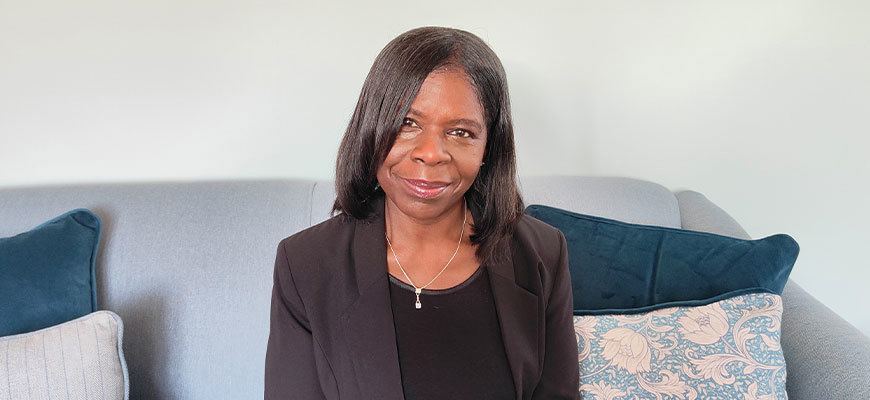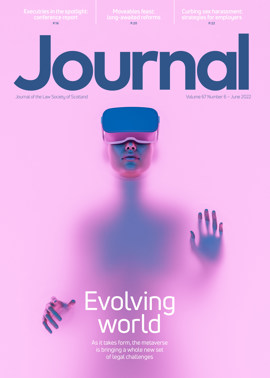In-house: From Windrush to Waltham Forest

You qualified as a lawyer at 41. Can you tell us a bit about your route into the profession – perhaps not a traditional path?
I decided to take the law degree at 33, via the traditional route but due to financial commitment worked a 25-hour week as a housing benefits complaints officer and chose the closest university to my place of work. That was the North London University, now known as the Metropolitan, where I drove back and forth from work for three years. Then I took nine months off to complete the LPC course at Store Street in London. After that I returned to work as a housing benefits officer for two years while searching for that all-elusive training contract, which I finally found in Kent as a legal adviser in the magistrates’ court. So for 18 months (as I got six months off due to work experience) I travelled from Tottenham in London to Maidstone, Sevenoaks, Sittingbourne and sometimes Chatham to run the courts. It was a difficult time; although I made a lot of friends, the day I qualified was the day I returned to London.
You were told at 15 that you weren’t A-level material. What impact did that have on you?
The impact was loss of confidence and belief in myself, which was already waning as I experienced serious bullying for a number of years in school. To be told you are not good enough takes something away from you, and affects every aspect of your life after that. My dad told me not to believe it, but I never saw anyone that looked like me, and never had a black teacher, so it hurt a lot.
As well as your current role as senior litigation lawyer at London Borough of Waltham Forest, you’re also a supervisor at the Windrush Justice Clinic. How did that come about and what does it involve?
I was a supervisor for the Windrush Justice Clinic (“WJC”) until May 2021, when I moved on to being the sole legal adviser to the Windrush Reach Project (“WRP”) based in Waltham Forest. I was recommended for the WJC by my previous director of law, Gifty Edila, an amazing woman who really gave me confidence as a senior lawyer, while working in Hackney.
WJC required working with third year law students and conducting interviews with victims of the Windrush scandal who wished to claim compensation. The interviews were difficult and an amazing learning experience for third year students, although at times interviews could be quite traumatic as one of the requirements (which I have always disputed) is that the victim explain the impact this has had on them, which I simply cannot understand. It required a lot of experience and understanding, which I hope was useful for the students.
WRP was run by the Waltham Forest, Antigua & Barbados, and Dominica Twinning Association, funded by the Home Office. I provided free legal advice on preparing detailed referrals to organisations representing those wishing to make compensation claims. It was more involved in that I worked with the Association in preparing the forms, considering the GDPR and making a number of presentations on the work we were doing to various organisations, as well as providing updates for newsletters. I obtained this position as I attended a meeting held by the Home Office where the Association had just received funding and they needed a legal adviser on board.
What do you see as the main value in doing pro bono work?
All my work for Windrush is pro bono. For me it’s an honour to have the opportunity to give underrepresented members of our society a voice and help them navigate their way through the complexities of the compensation scheme. Also dealing with a system that has failed those it was set up for does leave people scared and feeling alone, and seeing someone like me helps them to take that step into making applications, which I am glad I am a part of, as it’s important work.
On top of all this, you’re a published author. Your book Rice & Peas and Fish & Chips is part memoir, part social and historical commentary. What led you to write the book and what reaction have you had?
The book explores race and racism, culture and identity. I wanted to introduce my generation to the white population in a way that was not confrontational, but open and informational from a personal perspective. The response has been phenomenal. People have reached out to me from all over the country, telling me how much they have enjoyed it, and I have had a number of radio interviews. All I can pray is that I can work towards making the book a great success, but it’s still early days and I have a long way to go.
You’re delivering a keynote speech at the In-house Annual Conference in June, on “Inclusivity: Boldly going where no one has gone before”. What can we expect from your session?
Creating awareness, getting my colleagues to understand that although we may be different in appearance, we all strive for the same thing, through telling listeners what they need to hear rather than what they want to hear, not from a place of confrontation but from a place of understanding – which takes us through the last 50 years of the first generation born to West Indian parents.
Why is improving inclusivity and diversity in the legal profession so important?
Because the law is the only thing, we have to protect us against injustice, and therefore it’s crucial that we believe it is there for all of us. But with that in mind, and with the Human Rights Act under threat, and judicial review undergoing change and the Nationality & Borders Bill being pushed through, these are scary times.
What was your main driver for working in the public sector?
It was really the only road I could take. I was 41 years old when I qualified and I knew the public sector inside out, so it was a foregone conclusion that I would achieve a lot more and could progress within an organisation I was familiar with. I had to hit the ground running, which was great as I secured a senior position within four years of qualifying.
You call yourself a “prosecutor with a heart”. What do you mean by that?
As prosecutors we are known as enforcers, but at the other end of our cases are human beings. We have to find it within ourselves to work with people rather than against them. Of course, this is not always possible and if you break the law there are consequences, but it’s not what you do but how you do it that makes the difference in practising law. I regularly go toe to toe with client departments, as of course we do not always agree, but you have to be true to yourself and I believe we all have a mutual respect for each other in our respective roles.
How have attitudes and working practices in the legal profession changed in the law since you started out?
Unfortunately, attitudes within law are still limited, as the number of black judges is still just at 1%. There is also a lot of pushback against taking positive steps to address this from some within the legal profession, who see this as a way in through the back door – which could not be further from the truth.
What advice would you give young people who want to go into law?
Get some work experience in other areas as well as law, as there are so many different routes available now: the law is changing and we as a profession have to change with it. Communication skills are so important, and understanding the world is a diverse place is equally important. A good starting point is what we are doing now: talking, learning about each other, will make us all better lawyers.
Finally, what do you love about your role and what do you love doing when the working day is done?
With everything I am doing, sleep is a mere inconvenience. The day is never done for me. I sum up my life like someone working towards a gold medal – there is no room for complacency or self-doubt. Maybe if Rice & Peas and Fish & Chips makes enough sales I can focus on writing for a living, which is my ultimate dream. But in all this, the most rewarding aspect of everything I do is the chance to give people a voice and a chance to be heard.
Sign up for conference!
The In-house Annual Conference 2022 takes place on the mornings of 28 and 29 June. For full details and to register, see the Society’s CPD web pages.
Perspectives
Features
Briefings
- Criminal court: Hunted within the law?
- Corporate: The Register of Overseas Entities
- Intellectual property: A new era for the internet
- Agriculture: Tenant gives notice then pleads for stay
- Succession: Challenging valuations
- Sport: FIFA guide boosts women’s football
- Property: Property lawyers unite!
- Data protection: Privacy– recent enforcement highlights
- In-house: From Windrush to Waltham Forest






